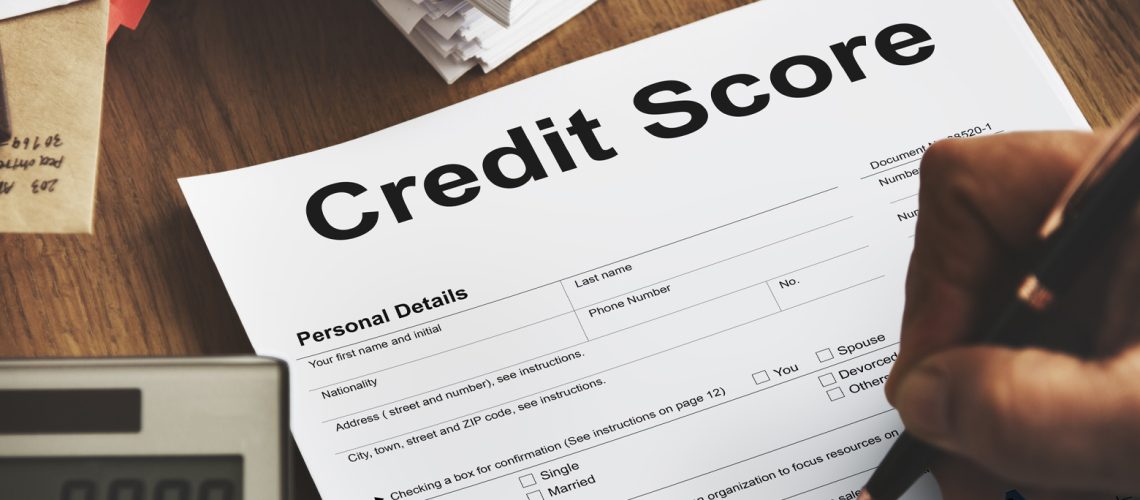A good credit score opens up many financial opportunities for borrowers. It’s difficult to qualify for a credit card, a car loan, or a mortgage without good credit. Landlords and even employers will check your credit score when you apply for a new apartment or a job. What determines your credit score, and is there anything you can do to give it a boost?
What Makes Up Your Credit Score
Here’s the breakdown of what determines your FICO score.
Payment History (35%)
Your history of making payments on time is the biggest factor in determining your credit score. Late payments will quickly lower your score.
Amounts Owed (30%)
This portion of your score compares the amount of debt you owe to the amount of credit you have available. The lower your credit utilization ratio, the better your credit score will be.
Length of Credit History (15%)
Your score will be higher the longer you’ve had a credit history. Someone who’s just begun to build credit will typically have a lower credit score than someone with a longer credit history, even if his or her payment history, and other factors, are similar.
New Credit Accounts (10%)
Opening too many new accounts may lower your credit score. Every time you apply for a loan or a new credit card, your credit report will record a hard inquiry. A high number of hard inquiries will reduce your credit score.
Types of Credit (10%)
Your credit score will improve if you have a good mix of different types of credit accounts, such as credit cards, installment loans such as car payments, and long-term loans, such as a mortgage
Increase Your Credit Score by Disputing Errors
One of the simplest ways to improve your score is to correct errors. One in every 20 people has a large error on his or her credit report. Under the Fair Credit Reporting Act, each major credit bureau must provide you with a free copy of your credit report once per year. Request your credit report by visiting the website www.AnnualCreditReport.com.
While many websites claim to offer free credit reports, AnnualCreditReport.com is the only site authorized by the Federal Trade Commission to provide free credit reports.
Disputing Inaccurate Items
If you find an inaccurate item on your credit report, here’s what you should do.
1) Contact the credit bureau in writing and tell them what information you believe is incorrect. Send copies of all documentation that supports your dispute. Send copies of your documents and keep all originals. The FTC provides a sample dispute letter on their website. Send your dispute letter and documentation via certified mail with a return receipt requested, so you have a record that the credit bureau received it. The credit reporting company must investigate your dispute within 30 days (unless they consider it frivolous).
2) Notify the creditor in writing that you dispute an item in your credit report. Again, send copies of any documents that support your claim and keep the originals. Send your letter and documents by certified mail and request a return receipt. When you dispute an item, the furnisher must notify the credit reporter of the dispute. If it’s found that the disputed item was, in fact, incorrect, the furnisher must notify the credit bureaus, and the credit bureaus must update their records.
Even if the furnisher maintains that the disputed item is accurate, you can request that a statement about the dispute be included in your credit file.
Remember to save copies of all correspondence with both the credit bureau and the furnisher.
4 More Ways to Boost Your Credit Score
While there’s no “quick fix” to repair your credit, there are several things you can do to boost your credit score.
Make All Payments on Time
Since payment history is the biggest part of your credit score, paying your bills on time is one of the best ways to increase your score. If you have trouble remembering what’s due when writing due dates on a calendar or set up reminders with a smartphone app.
Reduce Your Debt Load
Lowering your debts improves your credit utilization ratio and therefore your credit score. Pay more than the minimum balance due whenever you can. If you’re offered a credit limit increase, accept the offer, but don’t use it!
Use a Secured Credit Card
Secured credit cards require an upfront cash deposit. The amount of your deposit determines your credit limit. If you’re late making payments, the cash deposit becomes collateral. However, if you make payments on time, you’ll receive your deposit back if you close your account. Make sure to choose a secured credit card with a low annual fee, and ensure that you choose a lender who reports your payment history to all of the major credit bureaus.
Become an Authorized User
Having someone else name you as an authorized user on their credit card can be an easy way to build credit history and improve your score. This approach has its benefits and risks. Consider these important points if you decide to become an authorized user.
- Being an authorized user affects both you and the primary account holder. If the card’s primary holder makes late payments or defaults altogether, your credit score will be hurt, too. Only become an authorized user if you trust that person to make payments on time, every time.
- You do not necessarily need to use the card yourself. It will still help to build your credit, as long as the primary account holder makes payments on time and keeps the credit utilization ratio low.
- Make sure that you and the primary cardholder both agree on what types of purchases you can use the card for and how much money you can spend. Put your agreement in writing; doing so will save you both a lot of confusion and hassle if there’s a dispute between you later.
Repairing your credit takes time and effort. It won’t happen overnight. If you budget carefully and use credit responsibly, your credit score will improve.




